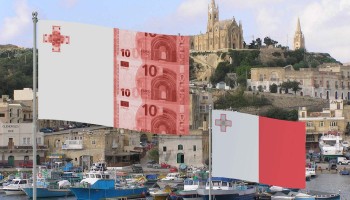Mizzi told the MEPs that his offshore firms were created “for family reasons” and “were never intended for commercial activities.”
He refuted the validity of the emails leaked in the Panama Papers, that show Mossack Fonseca was told by an intermediary “that the offshore company was created to work on waste management in Asia.”
However, a newly discovered set of emails in the Panama Papers show that the offshore firms of Mizzi and the prime minister’s chief of staff Keith Schembri were planning to have two Dubai firms, called 17 Black and Macbridge, become “main target clients” —meaning they planned to do business with them.
On the top of that, while investigating a draft report of the Maltese financial intelligence unit, the team behind the Daphne Project found that the two Dubai companies received unexplained payments of US$ 1.6 million from an offshore company in the Seychelles. The transactions were flagged by the US financial intelligence unit as suspicious of money laundering.
The new emails also show that the Panama firms of the two politicians were going to be used for fishing, gaming, infrastructure projects, tourism and other business opportunities.
While Mizzi claimed all along that the firms were not planning to do any business, Schembri had earlier confirmed that 17 Black and MacBridge were discussed as potential clients of the firms.
On Thursday, the European Parliament’s mission to Malta met in Strasbourg to discuss the revelations around Maltese politicians, including Mizzi and Schembri.
Earlier this week, the Malta Times reported that Economy Minister Chris Cardona had been seen drinking with one of the suspects in the killing of journalist Daphne Caruana Galizia, who was investigating the Island’s Golden Visas.
Caruana Galizia revealed that the country had sold visas for an estimated 850 million euros since 2014, “enough money to pull the entire Maltese economy from deficit to surplus in a few short years.”
“The situation in Malta is unbearable,” said MEP Sven Giegold in a statement.
“The new revelations must lead to drastic changes to counter the general perception of corruption and a weakening of the rule of law. Minister Mizzi and Keith Schembri have to step down or be dismissed. The programme for the sale of passports must be suspended immediately,” he said.
Giegold urged the European Commission to act and “overcome its light touch policy on the rule of law problems in Malta and urgently act as the guardian of European values.”






